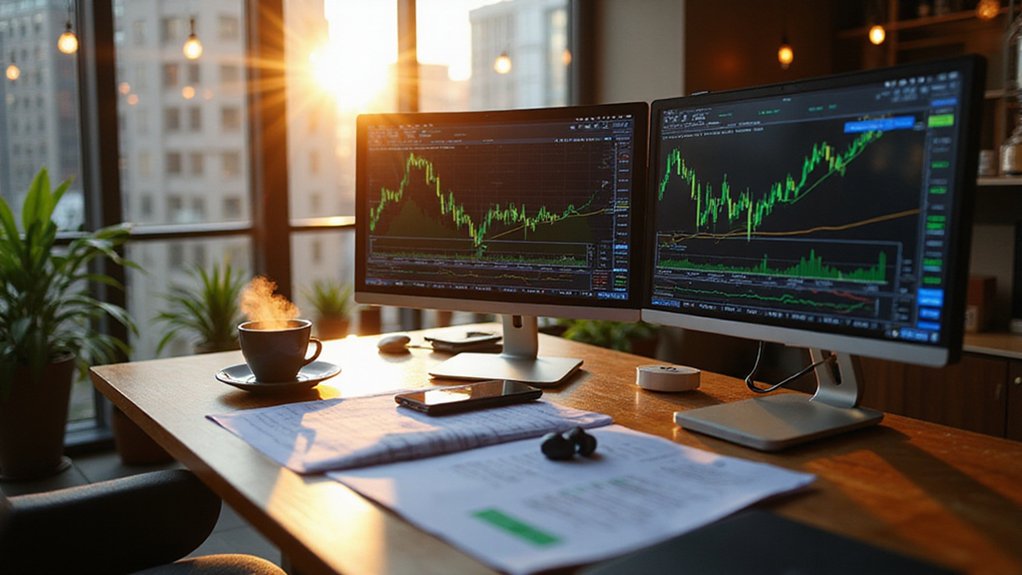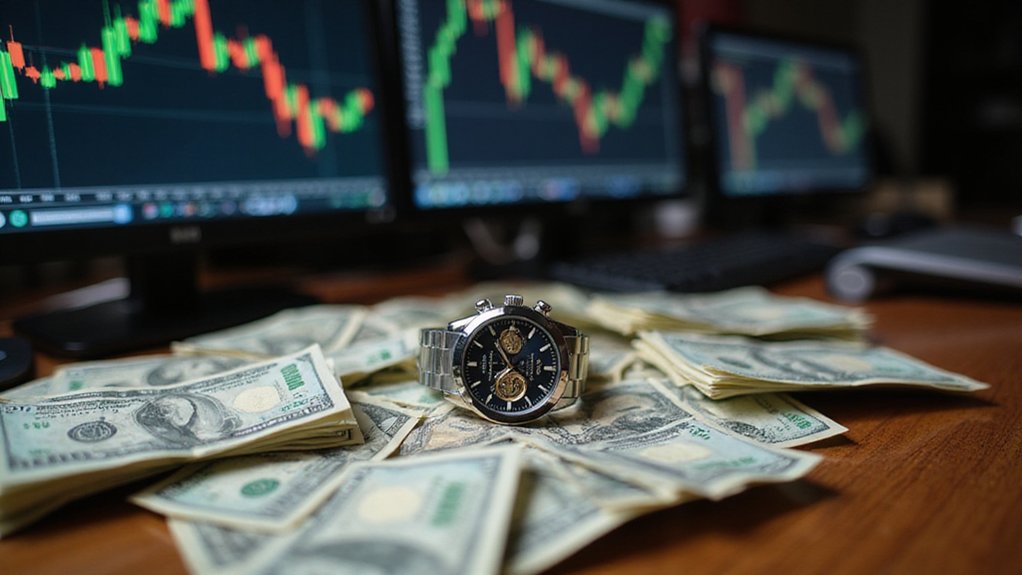When two of America’s most influential figures decide to air their grievances in public—complete with recession predictions and threats to revoke billion-dollar government contracts—the financial markets predictably respond with all the composure of a caffeinated day trader watching their position implode.
The feud between President Donald Trump and Elon Musk, ostensibly rooted in disagreements over economic policies and personal grievances, has demonstrated yet again how efficiently modern markets translate executive drama into shareholder pain. Tesla absorbed the brunt of investor anxiety, with shares plummeting 14.26% and erasing over $152.5 billion in market capitalization—a figure that would fund several small nations’ annual budgets.
Modern markets ruthlessly convert high-profile feuds into immediate financial carnage, with Tesla shareholders bearing the $152 billion cost of executive theatrics.
Musk’s recession prediction for the second half of 2025, triggered by Trump’s aggressive tariff policies, carries particular weight given his track record of prescient (if occasionally unhinged) economic observations. His warning aligns with growing concerns among financial executives, including JPMorgan’s Jamie Dimon, about America’s fiscal trajectory. JPMorgan initially assigned a 60% probability to a Trump-tariff-induced recession before moderating their forecast below 50%—though one suspects their risk models didn’t account for presidential social media feuds as a variable.
Trump’s retaliatory threat to revoke government contracts with Musk’s companies struck at the heart of SpaceX and Tesla’s operational framework, prompting Musk to briefly suggest decommissioning SpaceX’s Dragon spacecraft before reconsidering (presumably after his lawyers explained the legal implications). These contracts represent more than revenue streams; they’re foundational to both companies’ strategic positioning. The Congressional Budget Office estimates the broader fiscal legislation could increase the deficit by $2.4 trillion over the next decade, lending credence to Musk’s characterization of the spending package as problematic.
The broader market carnage extended beyond Tesla, with the Nasdaq 100 dropping nearly 1% as investors processed the implications of tariffs—essentially consumption taxes that economists uniformly regard as inflationary and potentially recessionary. The S&P 500 and Dow Jones joined the decline, reflecting systemic anxieties about trade policy uncertainty contributing to rising jobless claims. Financial analysts and Fortune editors specializing in technology coverage noted the unprecedented nature of a presidential-CEO dispute triggering such widespread market volatility. While crypto markets showed mixed reactions to the broader volatility, Avalanche’s AVAX token bucked the trend with its 21% surge amid record transaction volumes, demonstrating how certain digital assets continue attracting institutional interest despite traditional market turbulence.
Remarkably, Australia’s benchmark index remained unchanged amid the global volatility, suggesting that geographic distance occasionally provides immunity from American political theater. The episode underscores how individual personalities can trigger billions in market movements, transforming personal disputes into macroeconomic events with far-reaching consequences for global financial stability.





